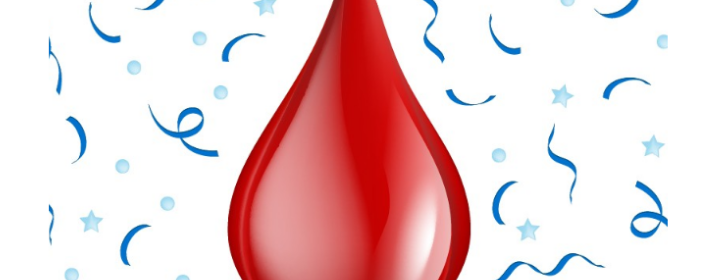Why a new blood drop emoji could help smash period stigmas

A blood drop-shaped emoji will soon be available on phones — and activists say that it’s a step in the right direction when it comes to smashing stigmas about menstruation.
Coding consortium Unicode, which distributes emojis across mobile devices, said it will include the “period emoji” in March. Other new emojis to be added by the company include disability and accessibility-themed icons, such as a mechanical arm, a service dog and hearing aids.
The emoji is the result of an online petition signed by more than 55,000 people. Created by advocacy organization Plan International U.K., the petition argued that having a period emoji would make it easier for women and girls to talk about menstruation.
Plan International U.K.’s head of girls’ rights, Lucy Russell, explained that the emoji is “a huge step towards normalizing periods and smashing the stigma which surrounds them.”
Russell explained that while an emoji can’t solve all the stigma and discrimination women face around the world over menstruation, it can start a conversation.
“An emoji isn’t going to solve this, but it can help change the conversation. Ending the shame around periods begins with talking about it,” she said in a statement.
In a 2016 survey, Plan International found that nearly half of women aged 18 to 34 believed an emoji would make it easier to talk about periods.
The survey, which had 90,000 respondents across 190 countries, also found that women often don’t feel comfortable talking directly about their periods and opt for phrases such as “on the rag” and “Bloody Mary.”
Stigmas around periods are widespread and vary across the world.
In Nepal, the centuries-old Hindu practice of “chhaupadi,” where women are banished from their homes during their periods, has already led to four deaths in the past few weeks.
Another 2018 survey by Plan International found that period stigma is something that’s present in Canada as well.
Eighty-three per cent of Canadian women said they feel their period prevents them from fully participating in activities, while 70 per cent said they have missed school or work or have withdrawn from social activities because of their period.
Saadya Hamdani, director of gender equality at Plan International Canada, explained to Global News at the time that period stigma is a form of gender discrimination.
“Combined with cultural taboos and misinformation about menstruation, period stigma is a form of gender discrimination that can cause emotion anxiety, and affect girls’ and women’s mental health,” Hamdani said.
— With files from Reuters
Source: Read Full Article


